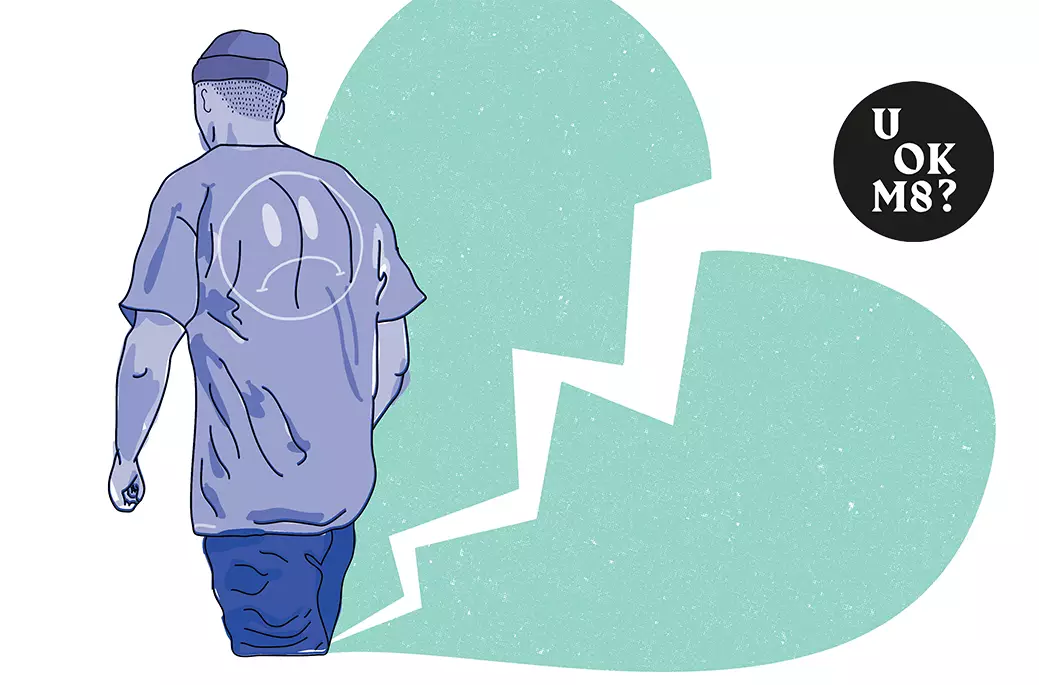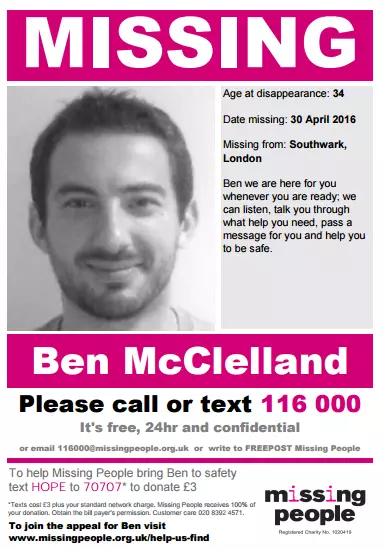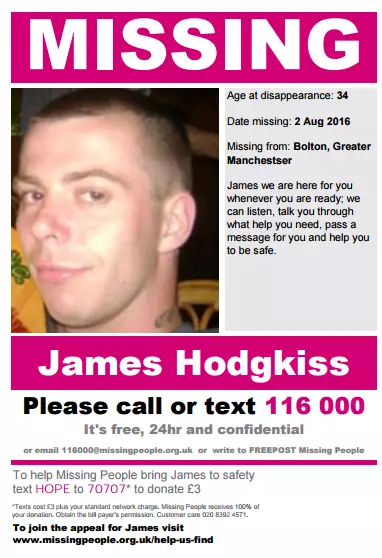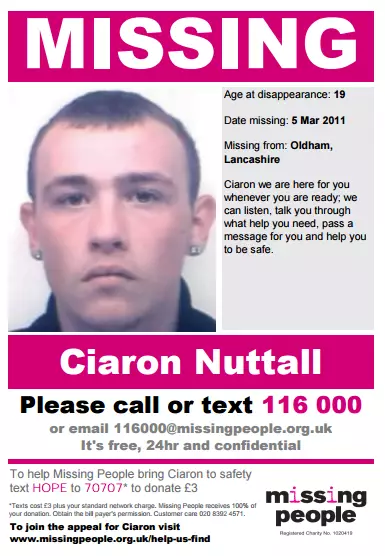
In the UK, around 250,000 people go missing each year. The majority of people who go missing do so intentionally and more than half of these are children or young people under the age of 18. In this age group it is far more likely for females to go missing. But once we start looking at adults who go missing, it flips and it's much more likely that a male will be reported missing, with males making up 73 percent of all people over the age of 24 disappearing.
Paul works at Missing People and he told theLADbible: "There are lots of reasons why people go missing. Mental health is a big one, relationship break downs, losing their job or another big issue that's troubling them. There's no set reason why people disappear; it can be one thing or a combination.

"More men take their own lives than women, and, tragically, some of the missing cases police deal with do turn out to be suicides. I think, and it sounds cliché, more men disappear because when they're feeling under pressure they don't talk about it. Men bottle things up more, so that if they are worried about something they'll keep it to themselves and the problem will just get worse and worse. And then all of sudden it's too much and they feel that running away is their only option.
"Mental health problems can cause a tunnel vision, so people aren't looking at things in a rational way. In fact, a lot of people who have disappeared during a mental health episode have told us that they can't even remember the first couple of days. It's all just been a blur and they're sometimes not even aware of the worry they've caused until they see a poster of themselves or are stopped by a police officer.
"Services like ours and CALM can really help but people need to reach out to us first. As well as talking to and offering support to families, we're also here for people who do feel overwhelmed and may be considering running away. We're always here for anyone who is away from home. At 3am, when no one else is around, we're just a phone call away."

You'd think that disappearing would actually be quite difficult. There are around 5.9 million CCTV cameras in the UK, everyone has a mobile phone, bank accounts are monitored and social media makes it easier than ever to track people down. And yet, hundreds of thousands of people still go missing each year.
Advert
Paul said: "Unless someone is thought to be in real danger, police won't access their mobile data or use mobile phone triangulation. If they plan ahead, people can go abroad or to a completely different part of the country and live there. It's surprising how easily people can go under the radar."
Part of the problem is a lack of awareness about the problems that people who go missing face, or an 'it won't happen to anyone I know' attitude. In an attempt to raise awareness of the issue, Missing People and BBH Barn jumped on the summer's Pokémon Go trend and placed vinyl posters of missing people - alongside contact information for the charity - onto the floor, right across London, where it would catch Poké-hunters' eyes.
Figures from 2010-2011 show that 91 percent of missing incidents are closed within 48 hours, and 99 percent of all missing cases are solved within one year. But what about that 1 percent? What's life like for the ones left behind? Tom Nuttall's brother, Ciaron, went missing in 2011. He was 18 when, after a silly family row, he stormed out his house in Oldham and hasn't been seen since.

Tom spoke to theLADbible about what it feels like to live life not knowing where your loved one is.
Advert
He said: "Ciaron was such a typical lad, but he was also a bit of a mummy's boy. We were all really close. The day that I last saw Ciaron was just a normal day, really. He argued with mum but it wasn't serious. He wanted to borrow a fiver and she told him 'no'. He stormed out but we just assumed he'd be back later, with his tail between his legs. But he didn't and no one has seen him since.
"He was just a normal lad. He didn't have any issues that we knew about and we were close so I think if something had been up then he would have spoken to me or my mum. At the beginning it was pure hell. We'd feel terrible even having the littlest bit of fun or happiness. We'd just feel so guilty. As time goes on, the not knowing is still devastating; not a single day goes by when I don't think of him and how he is. The whole family was hit so hard by it. Just not knowing if he's still alive, or if he's hurt - is he OK? Just waiting for a call or a text, every single day we think about him. Our mum has just died, so knowing that if Ciaron does come back then I'd have to tell him that is upsetting.
"If Ciaron is reading this, I'd like to say to tell him to get in touch. Whatever the problem is, whatever is going on, we can sort it out together."
Advert
If you can relate to any of this, please contact the amazing team at Missing People. You can call or text the helpline on 116 000, email [email protected] or click here.
Be brave. Talk about it.
'U OK M8?' is an initiative from TheLADbible in partnership with a range of mental health charities which will feature a series of films and stories to raise awareness of mental health.
Explore more here and don't suffer in silence. Reach out. It's the brave thing to do.
MIND: 0300 123 3393.
Samaritans:116 123.
Advert
CALM: Outside London 0808 802 5858, inside London 0800 58 58 58.
At TheLADbible we're trying to gather the biggest picture of mental health for young people and we're working with a range of charities so that our findings can help them. Filling in this poll will help us find out the extent of the problem.
Advert
Topics: Mental Health, Homeless